By Lutz Ziob, Dean of 4Afrika Academy at Microsoft
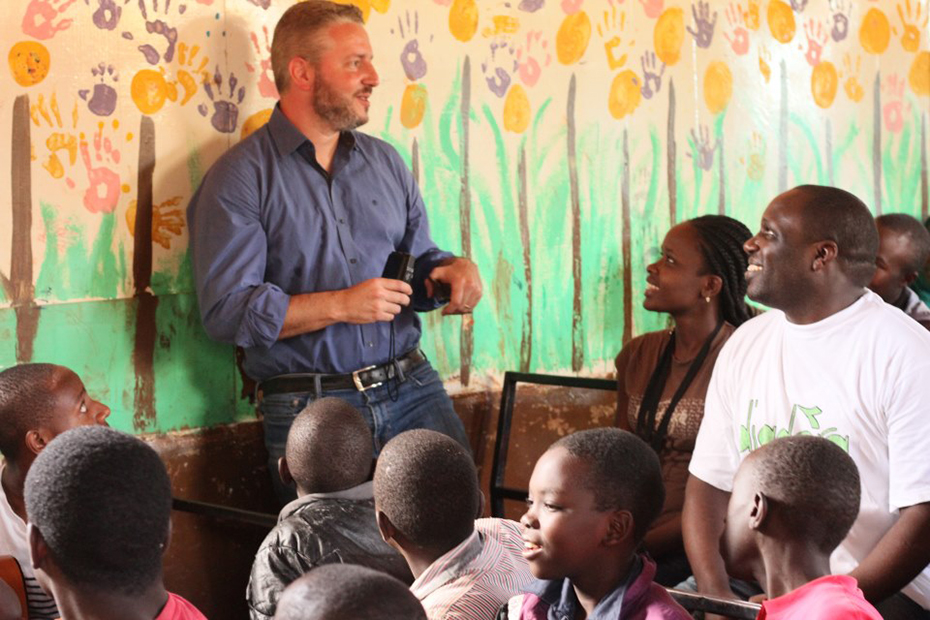
Ricardo Wagner, Senior Product Marketing Manager for Office 365 in Canada, during his MySkills4Afrika assignment in Kenya.
When Ricardo Wagner, Senior Product Marketing Manager for Office 365 in Canada, returned home from Rwanda, he felt renewed. “I really feel I can do more and help the communities achieve more,” he said. “The experiences have inspired me to take on more responsibilities and use my skills to help others.”
Ricardo had been in town for two weeks as part of the Microsoft MySkills4Afrika volunteer programme. He was using his skills and knowledge to help deliver affordable technology solutions to the education sector. Two years later, he returned to Africa to volunteer again – this time empowering small businesses in Kenya.
Corporate volunteer programmes are becoming increasingly popular, largely because of their multi-faceted impact. They help companies make meaningful contributions to communities, while drawing closer to their customers and local markets. At the same time, and perhaps most importantly, these programmes help to grow employees, develop skills, broaden horizons and, ultimately, retain staff.
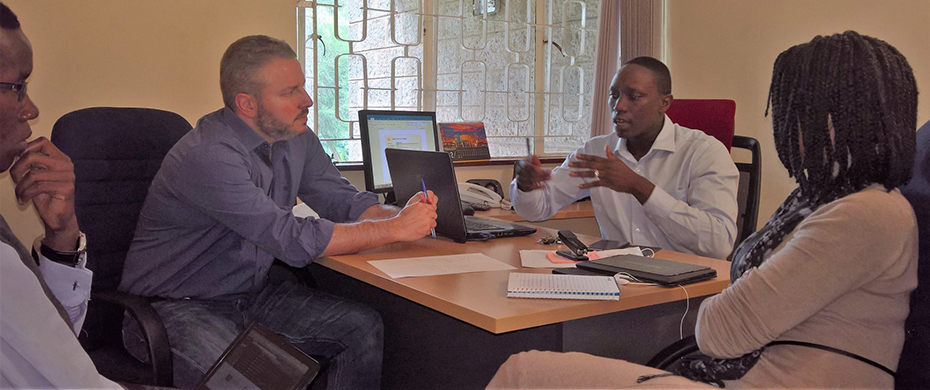
Ricardo Wagner working with a local organisation in Kenya, building their understanding of Microsoft cloud solutions for small businesses.
Last year, the Corporate International Service Learning (CISL) ran its third study, which looked at the long-term impact volunteer programmes have on participants, host organisations and local communities in general. The study, designed by Emerging World in collaboration with Credit Suisse, EY, GSK and Microsoft, found that competency-based volunteer programmes, such as Microsoft’s MySkills4Afrika, drove positive changes to the way employees work as a result of their experience.
But what is it that makes people want to volunteer in the first place, and why does it have such a positive long-term impact?
Clinical psychologist from South Africa, Dr Colinda Linde, weighs in to discuss the psychology behind corporate volunteering.
Why volunteer in the first place?
“A job may be really enjoyable, but it may have less of these moments than you’d like,” says Linde. “A volunteering assignment creates this satisfaction, but on a much deeper level. It brings in a very real human connection, as opposed to completing a task where people will benefit more at arm’s length.”
Indeed, there are a large number of organisations around the world who need specialist services – be it legal, financial or marketing – which they do not have or simply cannot afford. Volunteers can play a key role in using their skills to meaningfully help organisations grow – and feel a sense of purpose in doing so.
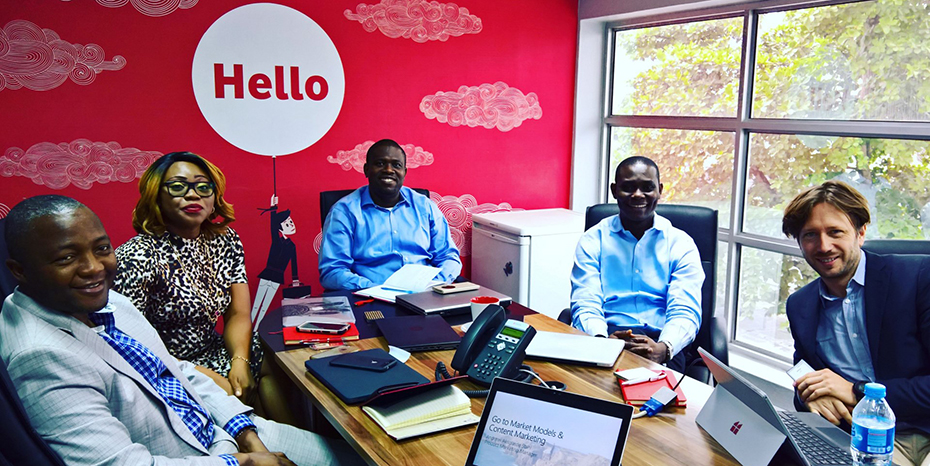
The Office Business Group Team from Denmark on a MySkills4Afrika assignment in Lagos, Nigeria
The CISL study found that if volunteering assignments are well defined and clearly targeted, it becomes much easier to find volunteers with skills that appropriately match the organisation’s needs. With a careful skills-based match, the volunteer feels they’re really making a difference, contributing to the success of their host organisation by using skills they feel ‘at home’ with. Linde describes this as having a feeling of belonging and being part of something bigger than just oneself.
And this is important for the employer as well. If an organisation wants to inspire career mobility in their employees, it’s important to assign volunteers to organisations that have a real need for their skills and expertise.
What’s in it for me?
A volunteering experience no doubt enhances a resume. There is also the essence of team spirit, where employees see their colleague’s experiences and want to be part of the collective effort. Since launching MySkills4Afrika in 2013, over 400 Microsoft employees have participated – mostly due to word of mouth.
More importantly, the CISL study found that volunteering helped career mobility. Upon returning from their assignments, 61% of MySkills4Afrika participants experienced increased seniority at Microsoft, while 86% identified the volunteering experience as contributing to their decision to remain with the company. This can partly be attributed to what Linde describes as a person changing their career prospects from ‘me’ to ‘us’ following a volunteer experience.
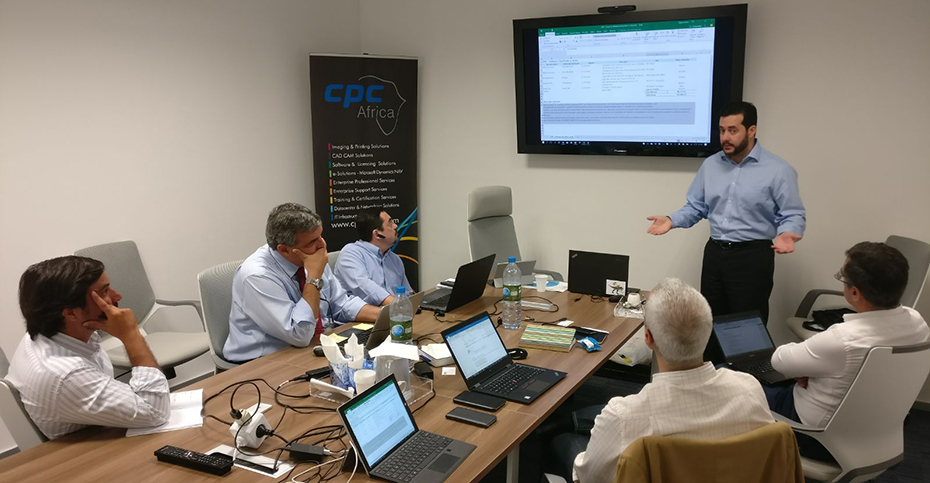
Glaucio Rocha, Senior Cloud Solutions Sales Executive from Brazil, hosting a cybersecurity workshop in Angola as part of his MySkills4Afrika experience.
“It is quite common for someone to take stock of their career path and role after such an experience,” says Linde. She adds that employees often want to take on more mentoring responsibilities and assist others within their own organisation.
For those who can’t spend weeks volunteering on the ground, technology and Cloud have made virtual volunteering possible. Virtual assignments can easily be integrated with work schedules. What’s more, it makes long-term engagements and relationships possible, where support doesn’t have to end after the plane takes off.
In addition to career mobility, employees also develop a much deeper understanding and knowledge of the local markets their company engages in. They get to see how their everyday work affects customers and partners all over the world. This helps employees to increase customer satisfaction, as they can adjust to and accommodate local realities.
What’s in it for companies?
In the digital age of virtual and augmented reality, people are seeking out increasingly sensory and stimulus rich experiences. As a result, employers often struggle to retain employees – especially millennials – who expect deeper and more meaningful experiences from their employers.
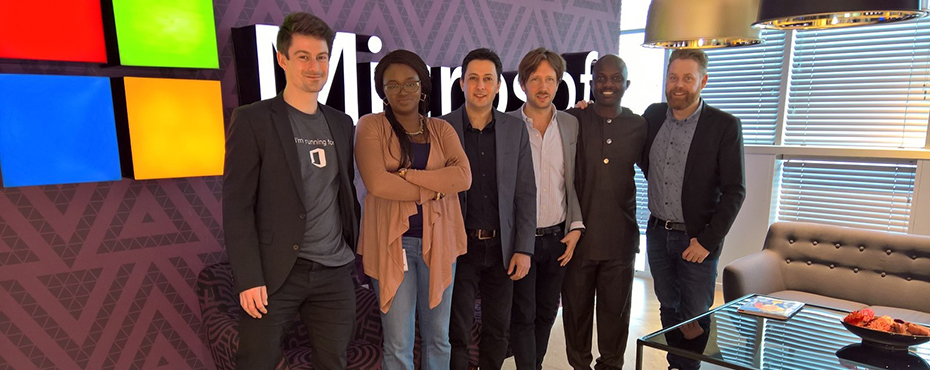
The Office Business Group Team from Denmark on a MySkills4Afrika assignment in Lagos, Nigeria
Offering a corporate volunteering programme allows companies to offer these – growing and retaining their employees while investing in communities. At the same time, as employees return and feed market insights back, companies are also empowered to design products and services that better meet local needs.
As one volunteer said, “MySkills4Afrika enabled me to think about the large audience that Microsoft has for all products. I continue to push my team to think beyond Redmond, think about the developers in other parts of the worlds who might be more influenced by competitors.”




